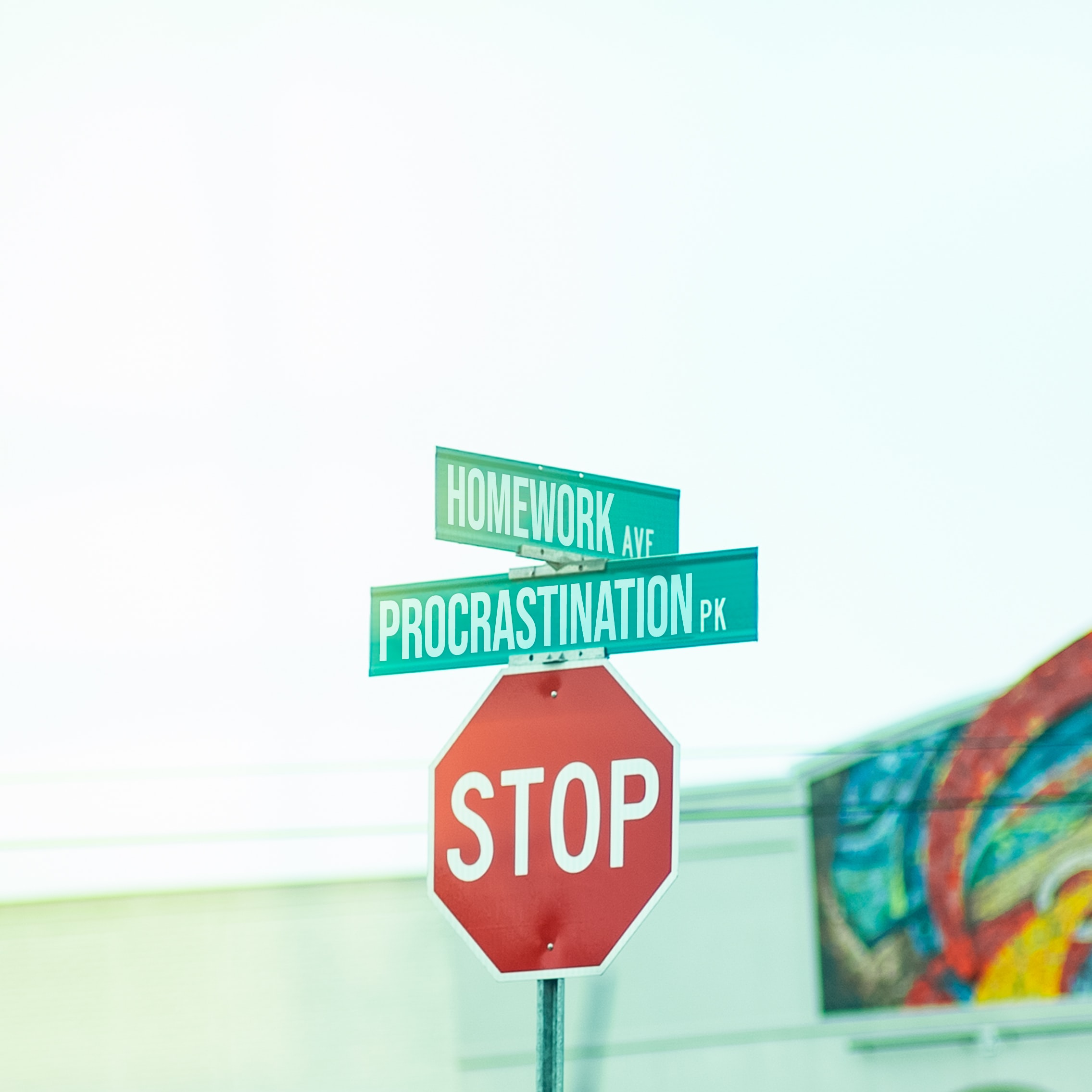[Written by Marta Zarantonello (she/her)]
[Photo by Pedro da Silva on Unsplash]
CW: Brief mentions of mental illness
What have the Greeks ever done for us? Despite the monumental collapse of the Greek empire in 146 BC, many traditions and ideologies remain salvaged from its ruins. Under the rubble lay the jumbled letters of Pythagoras’ theorem, between darting flames the Hippocratic oath and under the crumbling infrastructure of Corinthian columns the foundations of Western philosophy find refuge.
Yet the Greek era also saw one of the earliest proclamations against procrastination. Ancient Greek poet Hesiod documented his tendency to ‘put work off till tomorrow and the day after’. 2,720 years later and the description retains its relevance, because procrastination is still a major component in our lives.Overdue bills, last minute tax returns, and the recurring cry of a smoke detector, procrastination’s omnipresence is comparable to that of a stranger you met on a night out, one who comments on ALL your Instagram posts.
As university students we all know the feeling too well; it’s 3:30am and your workspace is a messy palace of convenience store energy drinks and coffee cups. The light of the screen coaxes tears of defeat from your eyes, as your fingers pace frantically across the keyboard. Letters, commas, and the occasional colon spill through your fingertips, crafting a spiraling whirlpool of nonsense on the document in front of you.
There’s been countless nights like these where meeting upcoming deadlines seemed impossible, and the feeling of helplessness is way too familiar because you’ve been procrastinating for months. If you’re reading this, you’re either curious about why some of your fellow peers are struggling, or there’s a good chance you’re one yourself.
At first glance procrastination appears to be a time management issue – a sense of structure and regality could be a feasible antidote – but procrastination is more than just an aversion. Upon closer inspection, it’s apparent that its foundations are built upon an inability to manage emotions rather than time. It’s no surprise that people who procrastinate have higher levels of stress and lower well-being. So, are we just lazy, or is there a scientific explanation for why tomorrow always seems like the better option?
On a psychological level procrastination perfectly encapsulates the action of present bias – our primal tendency to prioritise short-term needs over long-term ones. In actuality we perceive our ‘future selves’ as strangers. So as we procrastinate, parts of our brains think that the tasks we’re putting off are somebody else’s problem.
Scientists noted that in any country and at any time there are 20% of people who are marked as chronic procrastinators. Some of us are extreme perfectionists, who doubt they would ever be able to achieve the level of perfection they set for themselves, therefore, delaying tasks becomes a form of self-defense against their own criticism. Others simply get easily side-tracked by their surroundings, for them achieving their goals is a tricky business. But if procrastinating is only a negative state of mind, why is it so addicting?
The sensation of delaying a looming task is comparable to that of a McDonald’s after a night out – unparalleled ecstasy. Putting off a task delivers a burst of momentary relief, although short-lived. This sensation is the root of the problem. Basic behaviourism tells us of reward pathways, where the brain makes connections between the activity and pleasure. So even the slightest glimmer of reward ensures that we will repeat the behavior, and therefore procrastinate.
Sometimes having massive goals is simply too overwhelming; the workload gets to our heads and it distracts us from itself. The greater amount of work, the closer we are to adding one more YouTube video to our watchlist. But what is worth procrastinating? It never seems to be the ten seasons of a tv-show or the new albums of artists we love. It’s often something covered by a layer of obligation, it doesn’t matter if we enjoy it, the mere fact that a third party obliged us to complete this task makes it appalling to our eyes and worthy of being ignored.
For me, breaking down bigger goals into smaller ones is a great way to be productive – all in moderation right? That’s how I make sense out of the productivity that a cup of coffee brings me. Caffeine obviously takes a great part of it, but at the same time, the actual procedure of making coffee, brewing it, and pouring it into my favourite mug puts my mind in a safe zone – it feels right to get things done. Regardless of how you do it, I found that creating a routine before wanting to be productive makes an actual difference in the quality and quantity of the work you get done.
Facing a deadline you’ve put off is often a sweaty-palms situation. It almost feels like getting on stage in front of an intimidating audience without having read the script of the play. When the curtains are drawn, every minute procrastinated on Youtube documentaries, TikTok scrolling and unnecessary alphabetisation blossoms as regret but, as Freddie Mercury would say, the show must go on.

